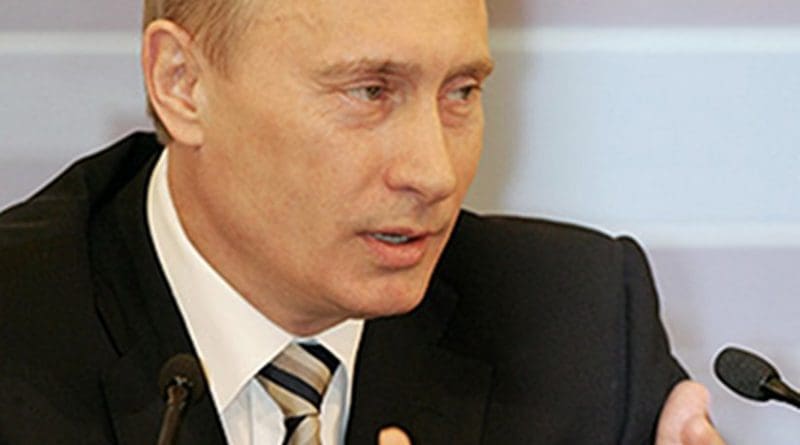Declared Support For Putin Not Measure Of Support For Regime, Milov Says – OpEd
By Paul Goble
Russians continue to support Vladimir Putin as a kind of “distant ‘ambassador of Russia to the world’ who somewhere defends [their] ‘interests,’” but “the gap between support of Putin and the absence of support for real power locally and the system of power built by Putin as such is enormous,” Vladimir Milov says.
The Russian politician and former deputy energy minister says that “Putin is Putin, but the real administration in Russia is being carried out in an entirely different way. Putin doesn’t participate in it … and people have had enough of the monopoly system of administration” the Kremlin leader has put in place (kasparov.ru/material.php?id=55F4568D6E1D6).
Many haven’t noticed this divide, Milov continues, because they are distracted by television reporting on “’Putin and his international adventures,’ but the dissatisfaction of people is very obvious” especially since “the Ukrainian theme, Crimea and the Donbas in general do not have importance. These are marginal themes which in general don’t agitate people.”
To be sure, he continues, “the passivity and the lack of faith in the possibility of change for the better among people is great.” Consequently, “the task of politicians is to overcome this passivity and shake people up.” Despite polls and voting patterns to the contrary, “this is a completely achievable task.”
Putin’s ruling “United Russia” Party “is an absolutely dead brand, like monarchy in 1917. No one will follow it anywhere,” and thus it is far from clear “how they will raise this dead body for the 2016 Duma elections.”
“In general,” Milov says, “this situation looks like the one in 2011 [when protests spread across Russia] even though all sociologists predicted ‘business as usual’” and confidently predicted “victory for the party of party in the Duma elections.”
There is a reason sociologists do so: they “telephone one and the same set of grandmothers once a month who answer in the same way.” Politicians have a better grasp of the situation, he suggests, because “they work on the land and feel the real attitudes” of the people. And thus he urges everyone to remember that “no sociologists predicted” the 2011 protests.

